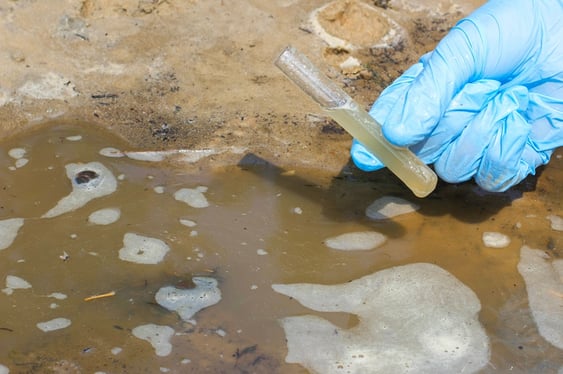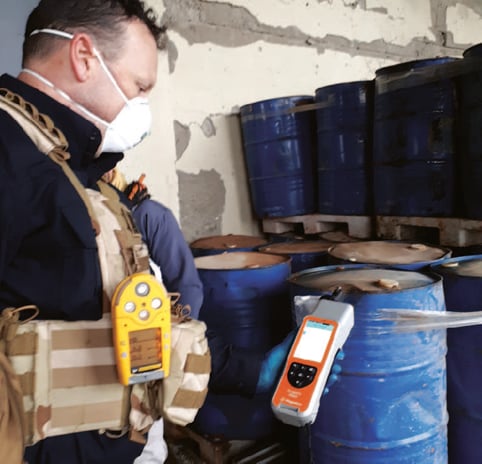What is a CBRN Operator?

May 12, 2022 - The Chemical, Biological, Radiological and Nuclear (CBRN) Operator is both a planner and responder. When faced with the threat or use of chemical, biological, radiological, or nuclear weapons, the CBRN operator provides technical information in order for tactical decisions to be made, ultimately mitigating the effects of employing those weapons.
The use of CBRN weapons dates to before the Middle Ages.
Now in the 21st century, technology, such as Raman spectroscopy, has allowed CBRN operators to expand their skill sets to conduct chemistry on-site, detecting chemical warfare, explosives, precursor chemicals, pharmaceuticals, and drugs.
What Skill Sets are Crucial in the Role of a CBRN Operator?
The CBRN Operator is trained to conduct a range of missions that include planning, avoidance, response, and recovery. Planning includes both anticipating the downwind hazard of an event, such as in war fighting, ethnic conflict, terrorism, or assassination, as well as conducting a technical reconnaissance prior to others entering a facility or site and rendering an 'all-clear' report. Both tasks provide information required to limit or avoid unnecessary exposure. A downwind hazard prediction facilitates positioning key activities or nodes outside of the hazard zone and provide uninterrupted operations.
Consequence management encompasses the range of technical skills to response (i.e. advise on personal protective equipment (PPE) levels of protection) and recover (i.e. decontamination) from a CBRN event to save lives and set conditions for a return to normal operations.

CBRN Operators and the 'Invisible Threat'
CBRN Operators shed light on an otherwise invisible threat. The cautious operator never assumes a pool of liquid is water.
On-site Presumptive ID in Post-ISIS-Occupied Territories
Read more about Jeff's post-conflict mission conducting toxic chemical surveys in order to remove and secure weaponized systems left in post-ISIS occupied territories


